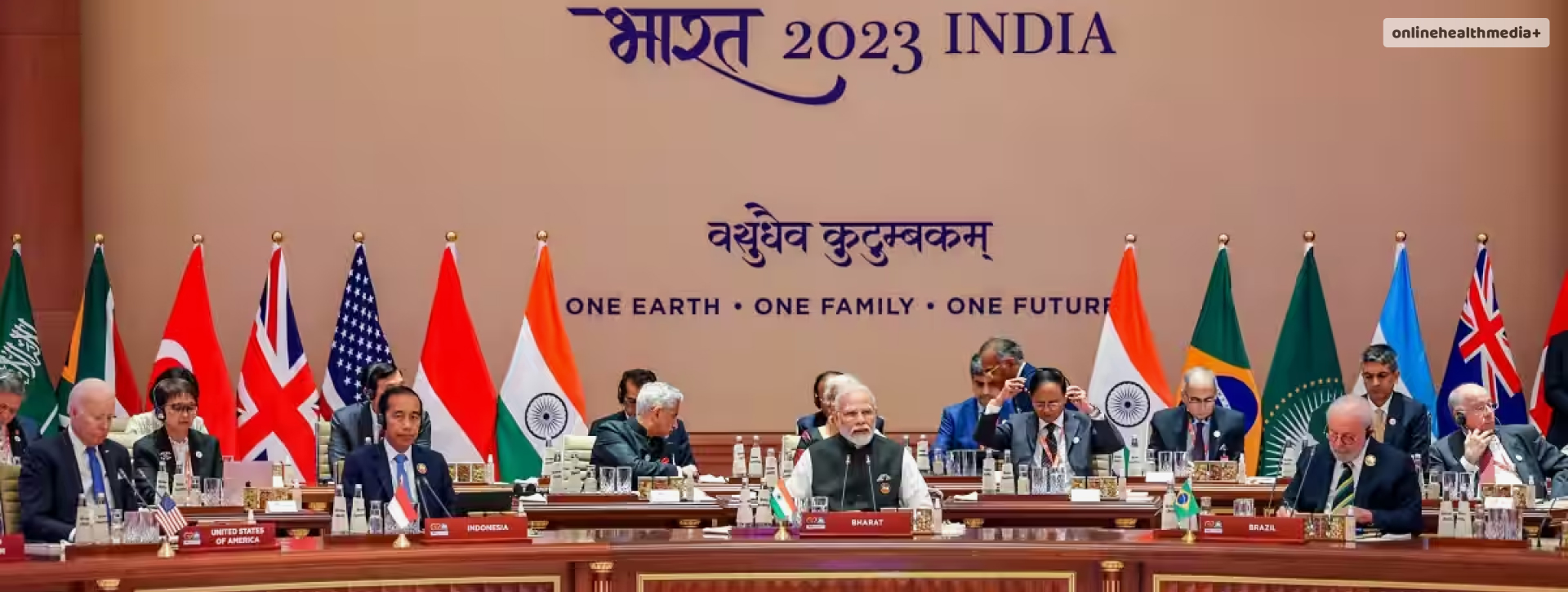India’s Three Priorities And One Health Approach In The G20 Declaration On Health.
The G20 summit held in New Delhi, India had in attendance, major world leaders. The declaration mentioned strengthening primary healthcare, essential health services, and health workforce to a better state than pre-pandemic. This is projected to be achieved within two to three years.
The focus is also on AIDS, and tuberculosis which are epidemics, recognizing the importance of research on long-term COVID.
The G20 declaration noted the progress made by India’s presidency in building a consensus for its priorities and launching the proposed repository. The three prioritized areas for India were declared to be:
Strengthening cooperation in the pharmaceutical sector with an emphasis on equal access to vaccines, therapeutics, and diagnostics.
Building a resilient system that prevents, is prepared for, and responds to health emergencies,
Creation of a platform that shares digital health innovation and ensures universal health coverage as CoWIN.
A few compromises were made to reach a consensus by India not insisting on the countries contribute to a $200 million fund for the digital health program.
Neither did it insist that the countries contribute towards a permanent platform for sharing intellectual property rights, knowledge, and resources. For the development of diagnostics, therapeutics, and vaccines.
The fund proposed by India was supported by non-profit organizations, while the attending countries rejected it. The declaration also included India’s offer to make its telemedicine platform, vaccine management platform, and Ayushman Bharat Digital Mission platform as digital public goods to others.
The initiative by India was lauded by delegates on the negotiating table to help end the stagnant initiatives by other countries. The existing health information gap was aimed to be addressed through this initiative.
The report shared by the World Bank elaborated on the success of the Ayushman Bharat Digital Mission. Where nearly 44.2 crore unique IDs were created by 2023 and 100-odd digital health services were integrated into the mission.
However, there were concerns raised about privacy and data protection. The proposal for an interim platform to promote end-to-end networks came after a consensus was not reached.
The outcome document said that the platform must be led by an effective representation of low-, and middle-income countries, a decision-making arrangement, summoned by the WHO. The time for developing the platform is not confirmed.
The opposition to the interim platform came from the senior delegates fearing a replication of ACT failures.
Evidence-based traditional medicine has been pushed by the G20 presidency with modern medicine. The global summit on traditional medicine was hosted simultaneously in August with the meeting of health ministers.
Also Read
- Understanding The Different Types Of Dental Fillings.
- Guide To Accelerated Injury Recovery For Optimal Health.
- 3d Tomosynthesis: A Cutting-Edge Approach To Breast Imaging.
